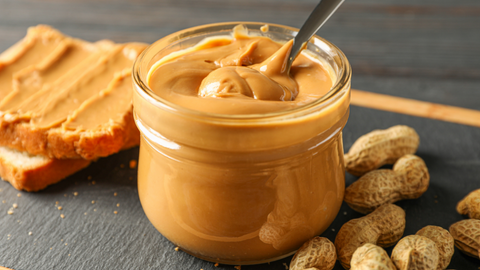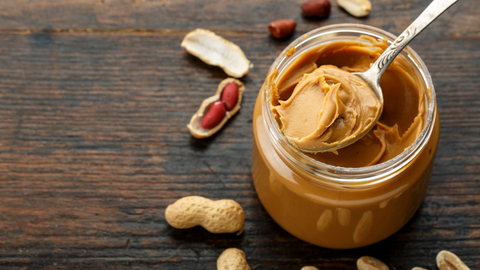NUTRITIONAL VALUE OF PEANUT BUTTER
NUTRITIONAL VALUE OF PEANUT BUTTER
Peanut butter is a nutritious snack that goes beyond the taste we experience when spread on a slice of bread. In this article, we answer the questions about peanut butter that many people enjoy consuming. You can find answers to questions such as the benefits of peanut butter, its calorie value, and what to consider when choosing.
BENEFITS OF PEANUT BUTTER
Peanut butter, rich in protein, fiber, vitamins, and minerals, deserves a significant place in our daily nutrition. It can be an ideal option, especially for athletes, fitness enthusiasts, or those seeking a diet rich in protein. When portion control is maintained, peanut butter plays an effective role in meeting nutritional needs by providing the body with healthy fats and protein. The benefits of peanut butter stem from its nutritional components. So, before delving into the benefits, let's examine its nutritional value in detail.
The benefits of peanut butter stem from its nutritional components. So, before delving into the benefits, let's examine its nutritional value in detail.
NUTRITIONAL VALUE OF PEANUT BUTTER
Peanut butter, with its healthy fats, protein, fiber, vitamin E, and folic acid content, offers many advantages to our body.
The nutritional value of 2 tablespoons (approximately 32 grams) of peanut butter is as follows:
- 188 calories
- 6.4 grams of carbohydrates
- 8 grams of protein
- 16 grams of fat
- 1.9 grams of fiber
- 4.3 milligrams of B3 (Niacin) vitamin
- 2.9 milligrams of vitamin E
- 49 milligrams of magnesium
These values are average figures for the nutritional value of peanut butter and may vary based on the brand, product, or production method.
HEALTH EFFECTS OF PEANUT BUTTER
- High Protein Content:It is a protein-rich snack, standing out as a nutritious source. Protein is essential for various functions, such as muscle development, tissue repair, and the production of enzymes and hormones. A spoonful of peanut butter can help meet your daily protein needs.
- Contains Healthy Fats:Peanut butter is particularly rich in unsaturated fatty acids. It supports heart health with Omega-3 and Omega-6 fatty acids and can help balance cholesterol levels. When consuming healthy fat sources, it is crucial to maintain a balance between Omega-3 and Omega-6 fatty acids, as an imbalance may lead to health issues.
- Rich in Fiber:The benefits of peanut butter include its richness in fiber. Fiber enhances bowel movements, prevents constipation, and helps the efficient absorption of digested nutrients by the body. Additionally, fiber provides a sense of fullness, contributing to digestive regulation and weight control.
- High Vitamin and Mineral Content:Peanut butter contains elements such as vitamin E, magnesium, phosphorus, and potassium. These vitamins and minerals not only support overall health but can also positively impact skin, hair, and nail health.
Is Peanut Butter Harmful?
While peanut butter can be a rich source of healthy fats, protein, and certain vitamins and minerals, it can be harmful when consumed excessively or if certain factors are overlooked.
Firstly, peanut butter has a high-calorie content and can lead to weight gain when consumed in excess, especially without considering portion control. Lack of portion control may increase the risk of obesity and related health issues.
Secondly, some peanut butter brands may add sugar and salt. High sugar content can be associated with type 2 diabetes and other metabolic problems, while high salt content may increase the risk of hypertension. Checking labels when buying peanut butter is crucial.

































